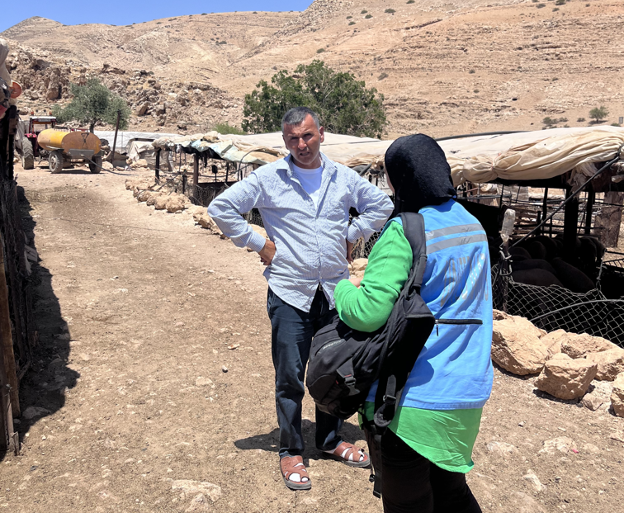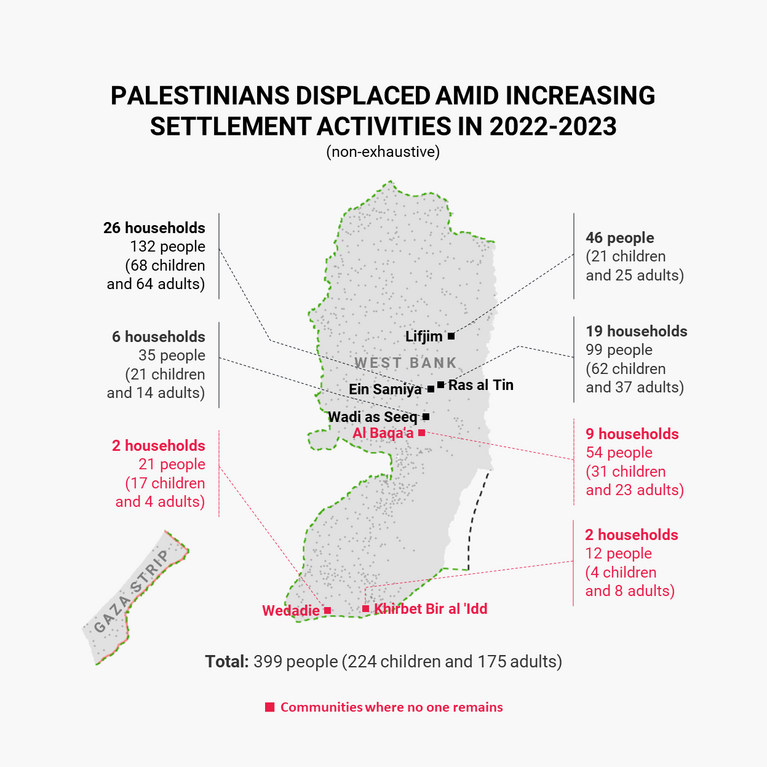UN and partners assess urgent humanitarian needs of herding communities in the Occupied Palestinian Territory amid increased Israeli settler violence
Statement by Lynn Hastings, Humanitarian Coordinator for the Occupied Palestinian Territory
The United Nations and our humanitarian partners have launched an assessment of the urgent humanitarian needs of sixty Palestinian herding communities across the Occupied Palestinian Territory, directly affected by an increase in Israeli settler violence and measures taken by Israeli authorities.
In the first six months of 2023, the UN recorded 591 settler-related incidents resulting in Palestinian casualties, property damage, or both. This is a 39 per cent increase in the monthly average of such incidents when compared with 2022, already the highest number of settler-related incidents since the UN began recording such data in 2006.
Palestinian herding communities are particularly vulnerable to settlement activities. In 2022 and 2023, OCHA documented the settler-violence-related displacement of at least 399 people (224 children and 175 adults), from seven Palestinian herding communities across the Occupied Palestinian Territory. Three of these communities are now completely empty, while only a few families remain in the others. The most-often-cited reason for leaving is settler activities, including violence and settlement expansion resulting in the loss of access to grazing land. Other factors include the threat of demolition of their homes and other properties by the Israeli authorities which expose these communities to the risk of forcible transfer.
Israeli settlements are illegal under international law. They deepen humanitarian needs due to their impact on livelihoods, food security and access to essential services. Set to be finalized in September, the assessment will inform the UN and our partners on the type of assistance most needed to best support the herders and their families.











